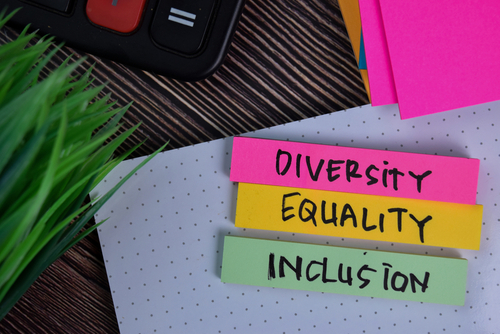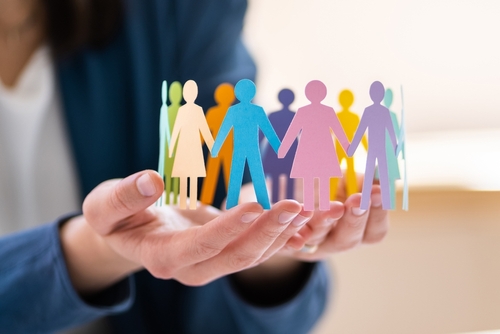The global marketing and advertising industry still has a lot to do when it comes to diversity, equity and inclusion (DEI) in the workplace, according to the latest Global DEI Census which was published this week.
The research effort was led by the World Federation of Advertisers (WFA) in close collaboration with a number of trade associations around the world, including the Association of Advertisers in Ireland (AAI), as well as the global market research firm Kantar.
The Irish leg of the research was overseen by the AAI with collaboration from a number of other industry representative organisations. Separate findings from the Irish research will be published later this year.
The results are based on nearly 13,000 responses from 91 countries.
The Highlights
According to the research, nearly one in seven members of the global marketing industry say they would leave our industry on the back of a lack of DEI.
The picture is even worse among certain groups, with 16% of women (almost 1 in 6), 17% of LGBQ+ (1 in 6), 22% of ethnic minorities (more than 1 in 5) and 24% of disabled respondents (almost 1 in 4) say they are likely to leave.
The research also shows that younger professionals (25-34 years) and caregivers are also slightly more likely to leave than the global average (18% vs 14%).
The overall one in seven figure remains the same as that found by the first Global Census on DEI in 2021 despite all the efforts that companies have made to increase diversity, retain talent and improve their appeal to potential employees around the world.
Those efforts are recognised, however, with nearly three in four (72%) respondents globally acknowledging industry attempts to improve the lived experiences of key groups.
The numbers vary widely by country though peaking in Canada (87%), the USA (87%) and Singapore (86%) but significantly lower in Japan (49%), Slovenia (51%) and Poland (54%).
Regional Differences
Half the respondents to the survey (50%) said things have improved but three in ten (30%) said things were the same as in 2021.
Again, responses varied by country. Seven in 10 agreed that things had improved in Spain (70%) and Brazil (69%) but only three in 10 agreed in Sweden (30%), Japan (32%) and Poland (32%). In the Gulf Cooperation Council (GCC), 9% respondents said things had got worse. Globally, those in senior positions were more likely to report that things have improved (58%) compared with managers (49%) and junior staff (42%).
The overall level of inclusion, calculated on the basis of answers to questions about a respondent’s sense of well-being, an absence of discrimination and a presence of negative behaviours was almost identical to 2021. The global DEI inclusion index was 64% last time (69% for men and 61% for women) and this year it is 63%, and still 69% for men and 61% for women. For LGBQ+ respondents, the Index has fallen two points from 60% to 58%.
The three countries to record the biggest improvements were New Zealand (up 10 percentage points to 71%), South Africa (up seven points to 61%) and Ireland (up six points to 68%) while the biggest three declines were recorded in Hong Kong SAR (down six points to 61%), The Gulf Cooperation Council (down four points to 57%) and the Netherlands (down four points to 63%).
Age, Gender & Family
The most common forms of discrimination reported are still around age, gender and family status. Forty-one per cent of women, 42% of parents and 39% of caregivers feel that family responsibilities hinder one’s career. Twelve percent of 18-24 year-olds and 17% of 55-64 years said they personally experienced age discrimination compared to an overall global average of eight percent.
Women, LGBQ+, ethnic minority and disabled respondents still have worse experiences than their counterparts. Men reported living better work experiences (69%) than women (61%). Disabled respondents reported living the worst work experiences (45% versus 67% non-disabled).
Women, disabled and ethnic minority respondents are all more likely to say they are unfairly spoken over (30% of women versus 21% men, 39% of disabled versus 25% non-disabled and 30% for ethnic minority respondents respectively versus 26% for ethnic majority respondents), undervalued compared to colleagues of equal competence (31% for women versus 23% men, 42% for disabled versus 26% for non-disabled, 33% for ethnic minorities versus 26% for their majority counterparts), bullied or made to feel uncomfortable in the workplace.
The initiative is supported by a coalition of 10 global marketing and advertising organisations – WFA, VoxComm, Campaign, Kantar, Advertising Week, Cannes Lions, Effie Worldwide, IAA, Global Web Index (GWI) and Adweek –as well as more than 160 organisations at a local level making it the marketing industry’s single biggest collaboration to date.
It is also backed by leading companies from across the marketing and advertising ecosystem, including Bayer, BP, Danone, Diageo, Dentsu, The Estée Lauder Companies, Haleon, Havas, KraftHeinz, L’Oréal, McCann, Meta, Philips, Reckitt, Sanofi and WPP.
“We should see this as glass half empty – and half full,” says Stephan Loerke, CEO of the World Federation of Advertisers (WFA).
“We are not greatly surprised to see no measurable change across the global industry in just two years because the challenges are so deep-rooted and systemic in society. They take time to address and overcome. But the first step is building awareness of the problem. We may not have meaningfully moved the needle globally but industry efforts are increasingly visible. Now is the time to double down and stay the course because ultimately our efforts will be rewarded with more diverse, equitable and inclusive workplaces where the best talent will flock,” he adds.






















